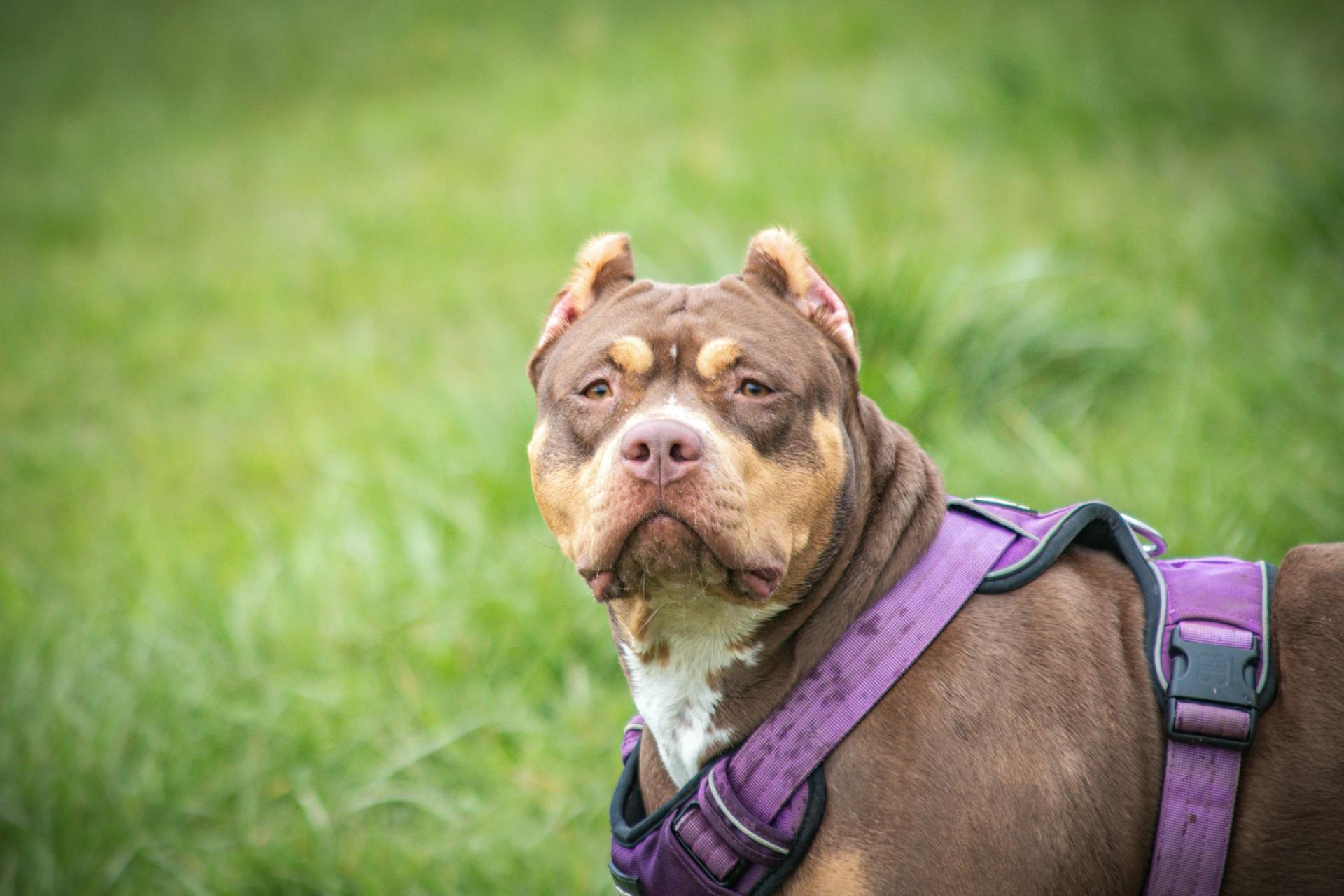
Small breeds of Pit Bulls, like the Pocket Pitbull, typically weigh between 30-40 pounds and stand about 11-14 inches tall at the shoulder. They're perfect for city living due to their compact size.
Their short coats require minimal grooming, making them a great choice for busy owners. They also need regular exercise to stay happy and healthy.
In terms of training, small breeds of Pit Bulls are highly intelligent and respond well to positive reinforcement. They thrive on structure and clear boundaries.
Training and Behavior
Training and behavior are crucial for small breeds of pit bulls. They respond best to confident, consistent leadership, and their stubbornness warrants patience and persistence.
Pit bulls are generally intelligent dogs that can learn quickly, especially with positive reinforcement training methods. This means using treats and rewards to encourage good behavior.
Early socialization is vital, and it's essential to make sure your dog has plenty of opportunities to bond with you and the rest of your family. This early connection will help shape your dog's temperament correctly.
As a result, you can expect your small breed pit bull to be friendly, intelligent, and loving, with a natural instinct to protect their family. With proper training and socialization, they'll be an absolute pleasure to be around.
Training
Training your Pocket Pit Bull requires patience and persistence. Consistent leadership is key, and they respond best to confident, positive reinforcement.
Early socialization is crucial, especially since they can be protective and strong-willed. Their intelligence allows them to learn quickly, but they need guidance to behave well in polite company.
Positive, reward-based training methods are essential, as harsh methods can backfire quickly. Focus on using treats and praise to encourage good behavior.
As a highly trainable breed, Pocket Pit Bulls can excel at obedience work, agility, and other tasks. However, their independent nature means they may require more time and effort to train.
Regular exercise is also vital for their mental and physical well-being. At least an hour of hard exercise every day will help keep them happy and healthy.
By investing time and effort into training and socialization, you can help shape your Pocket Pit Bull's temperament and make them a great canine citizen.
A different take: How to Train Your Bull Terrier
Pet Compatibility
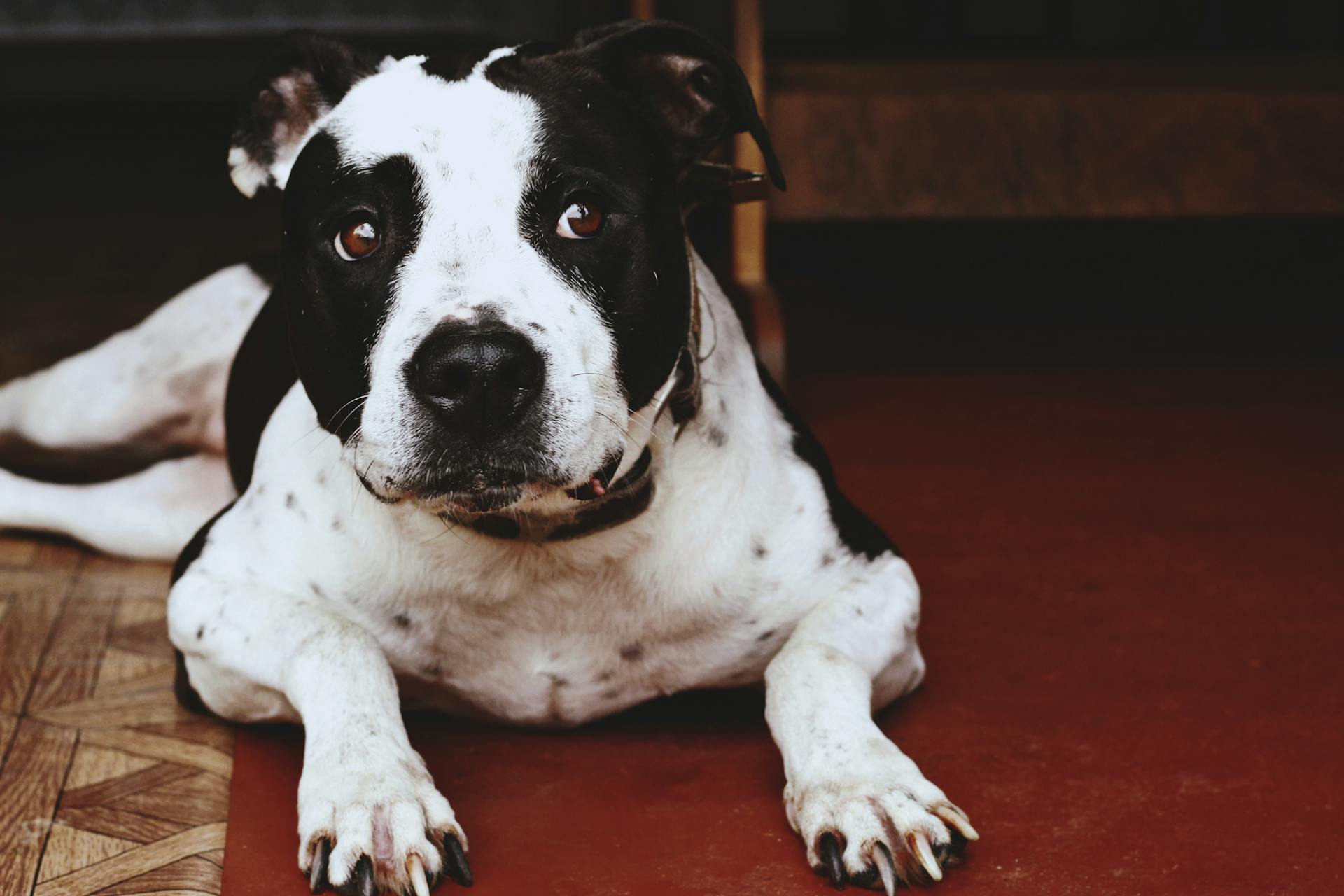
Pocket Pit Bulls generally do best as an only pet due to their hunting instincts and prey drive.
They may be able to live with other dogs, but only if raised with them and well-socialized. Supervise interactions closely and ensure the dog is well-trained.
Cats, smaller dogs, and pocket pets are not safe living with a Pocket Pit Bull, as they may be seen as prey.
Teacup Pit Bulls, on the other hand, make great family pets and respond well to training, getting along with other family members.
Early socialization is key for Teacup Pit Bulls, as it helps them become an absolute pleasure to be around.
Socialization from an early age is crucial for any dog breed, including Teacup Pit Bulls, to ensure they fare well with other animals and humans.
Related reading: Are Pit Bulls Good Family Dogs
Care and Health
As a small breed of pit bull owner, it's essential to be aware of the potential health concerns that come with this breed. Pocket Pit Bulls, in particular, can suffer from inherited health conditions from their parent breeds.
Some common health issues in Pocket Pit Bulls include inherited hypothyroidism, allergies, eye conditions like cataracts and cherry eye, hip dysplasia, and elbow dysplasia. These conditions can lead to serious health problems if left untreated.
To keep your Pocket Pit Bull healthy, it's crucial to feed them a well-balanced diet and provide regular exercise. A first-generation Pocket Pit Bull, bred directly from a Patterdale Terrier and a Pit Bull, is less prone to health problems than a multi-generation Pocket Pit Bull.
Here are some specific health concerns to watch out for:
- Inherited hypothyroidism
- Allergies, which can lead to skin and ear problems
- Eye conditions, such as cataracts and cherry eye
- Hip dysplasia and elbow dysplasia
- Genetic heart problems
Regular Exercise
Regular exercise is essential for your Pocket Pit Bull's physical and mental well-being. They need at least an hour of hard exercise every day.
Their high energy level makes them perfect for active families who can keep up with their needs. A good game of tug and war or fetch in the backyard can be a great way to get them moving.
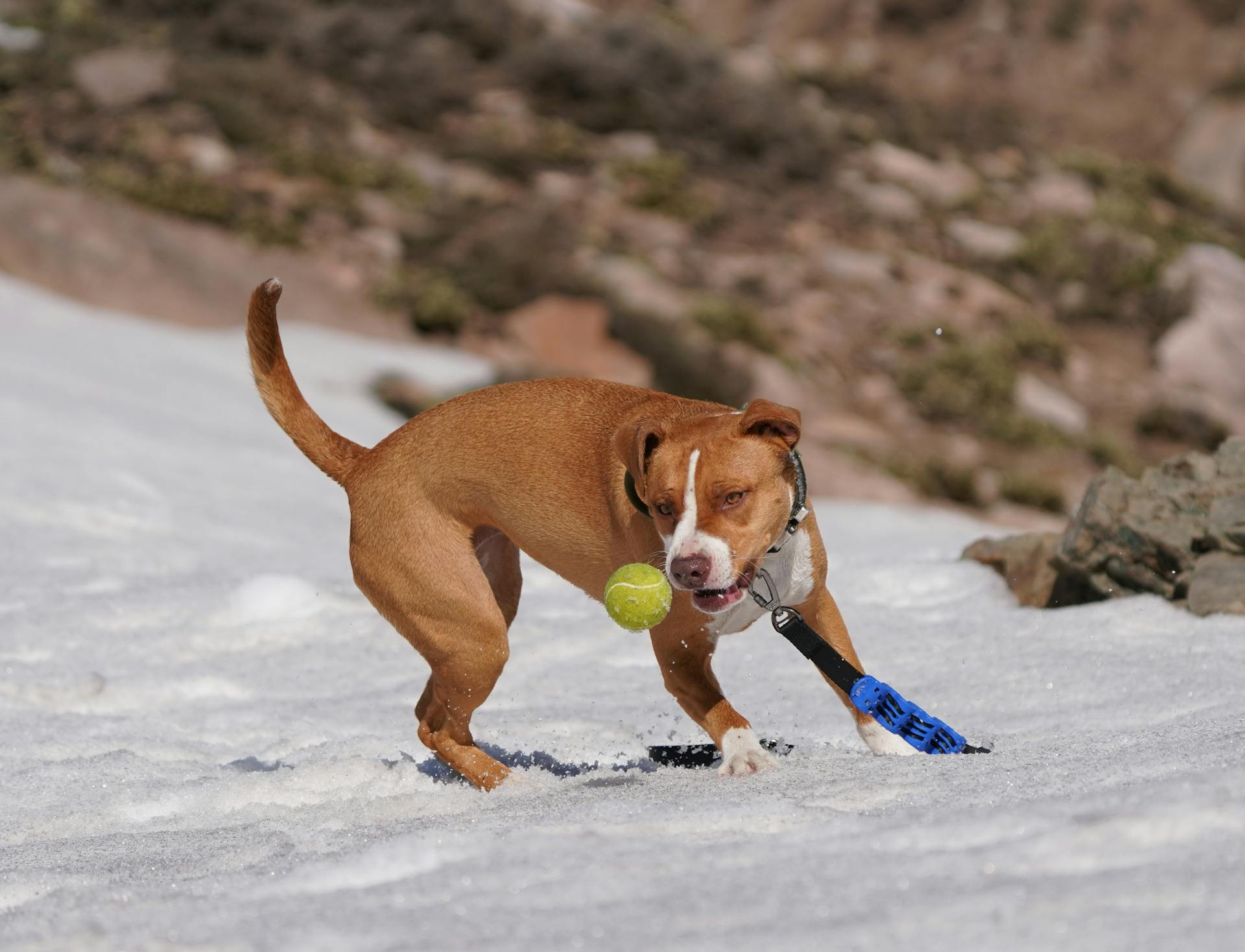
Pocket Pit Bulls can become bored, anxious, or destructive if they don't get enough physical and mental exercise. Consistency is key, so establish a daily exercise routine that works for you and your pup.
As a breed, they're highly trainable, which means you can teach them to enjoy activities like walking, hiking, or jogging with you. This will not only improve your bond but also keep you both happy and healthy.
In extreme weather conditions, be mindful of their sensitive skin and short noses, which can make them prone to overheating.
Grooming
Grooming is a crucial part of Pocket Pit care.
Most Pocket Pits have a short, smooth coat that requires minimal grooming. Brushing your dog 2-3 times a week can help keep their coat healthy and control shedding.
The breed isn't hypoallergenic, so be prepared for some shedding. Bathing should occur as needed, but Pocket Pits with allergies or skin problems may need to be bathed more often and with special shampoos.
Trimming your Pocket Pit's nails regularly is also essential. Regular dental care is another must, to keep their teeth and gums healthy.
Health Concerns
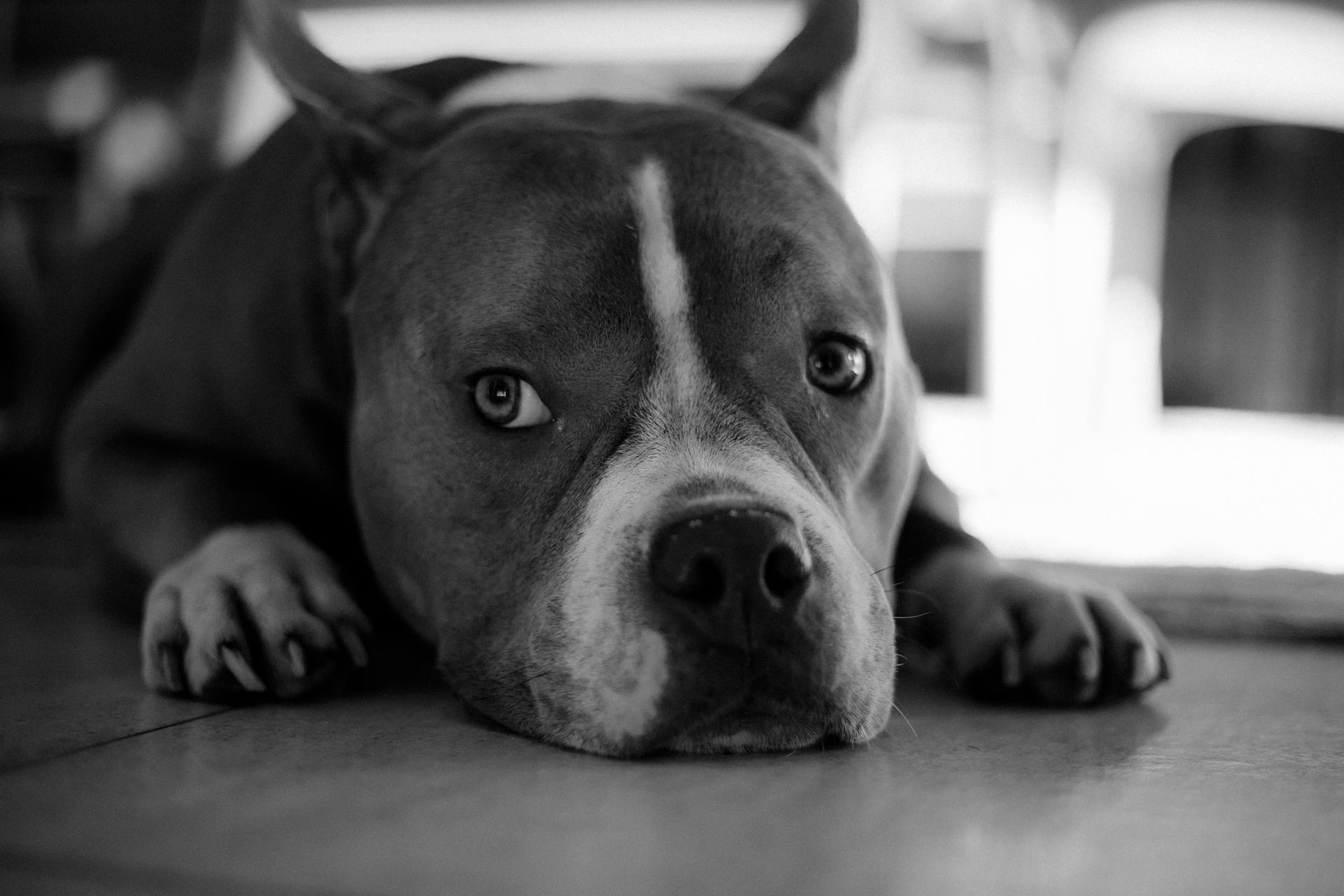
As a responsible dog owner, it's essential to be aware of the potential health concerns that come with owning a Pocket Pit Bull. Inherited hypothyroidism is a common issue in this breed, which can lead to a range of symptoms if left untreated.
Allergies are also a common problem in Pocket Pit Bulls, causing skin and ear issues that can be painful and uncomfortable for your dog.
Eye conditions such as cataracts and cherry eye are also a concern in this breed.
Hip dysplasia and elbow dysplasia are two conditions that can cause mobility issues and chronic pain in Pocket Pit Bulls.
Genetic heart problems can be a silent killer, so it's crucial to keep an eye out for any signs of heart issues in your dog.
To give you a better idea of the potential health concerns, here are some specific issues to watch out for:
Caring for Bulls
A well-balanced diet is crucial for your dog's health and overall condition. This is especially true for breeds like Teacup Pit Bulls and Pocket Pit Bulls.
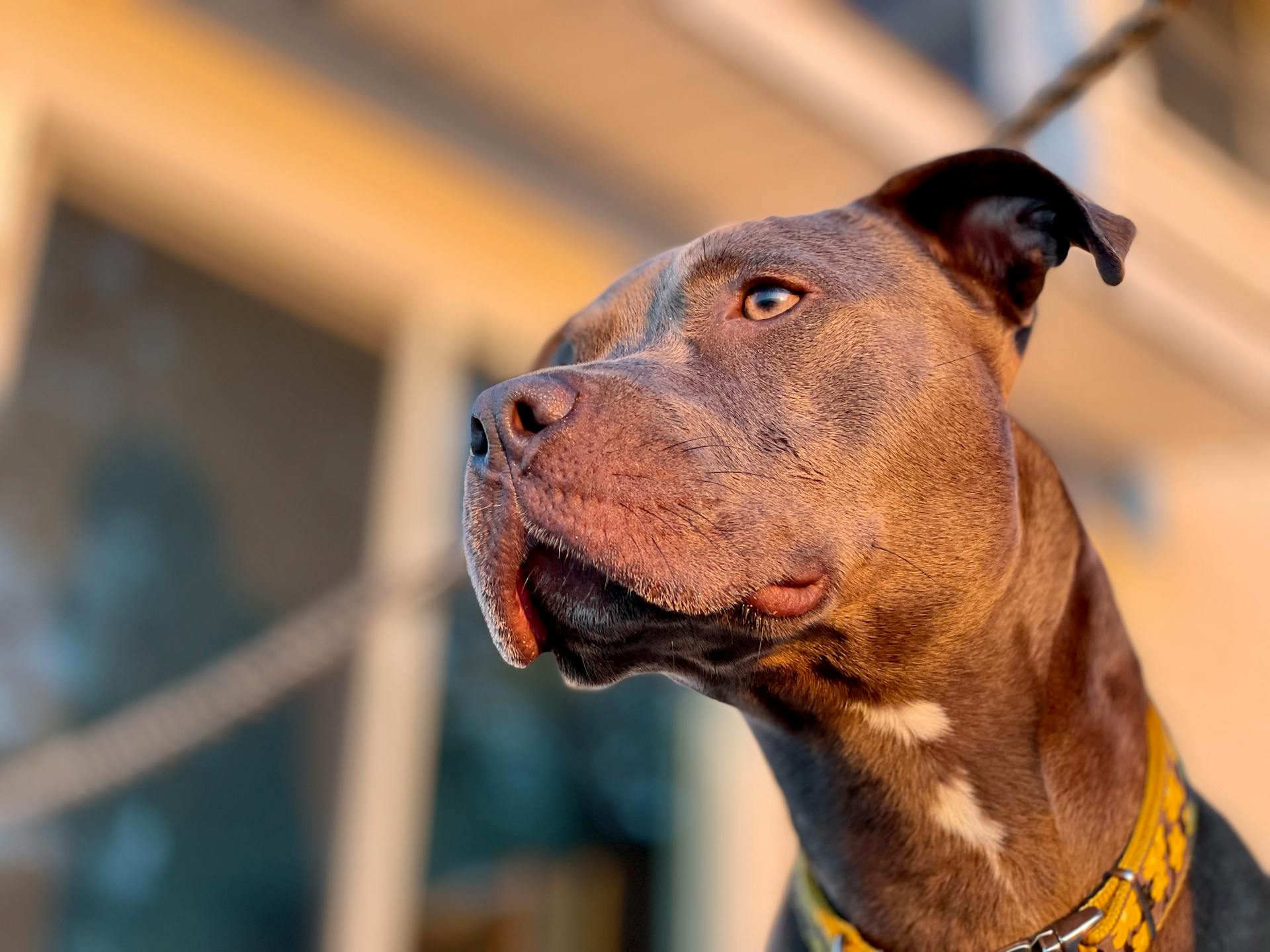
You can expect a Pocket Pit Bull to be an energetic dog that requires regular exercise to stay happy and healthy. A daily walk or playtime is a must.
Feeding your Pocket Pit Bull correctly is essential to prevent inherited health problems from their parents. A balanced diet will help keep your dog in top condition.
As a medium-sized dog, Pocket Pit Bulls need plenty of space to run around and play. They're perfect for active families who can keep up with their energetic lifestyle.
Their high trainability makes them a joy to work with, but consistency and patience are key. With positive reinforcement, your Pocket Pit Bull will learn to obey commands in no time.
Frequently Asked Questions
Is there a micro pitbull?
Yes, a micro pitbull is a smaller version of the American Pitbull Terrier breed, often referred to as a "pocket-sized" or "toy" pitbull.
Is there a teacup Pit Bull?
There is no recognized breed standard for a "Teacup Pitbull," and the term is often associated with misconceptions about the American Pit Bull Terrier.
Featured Images: pexels.com


